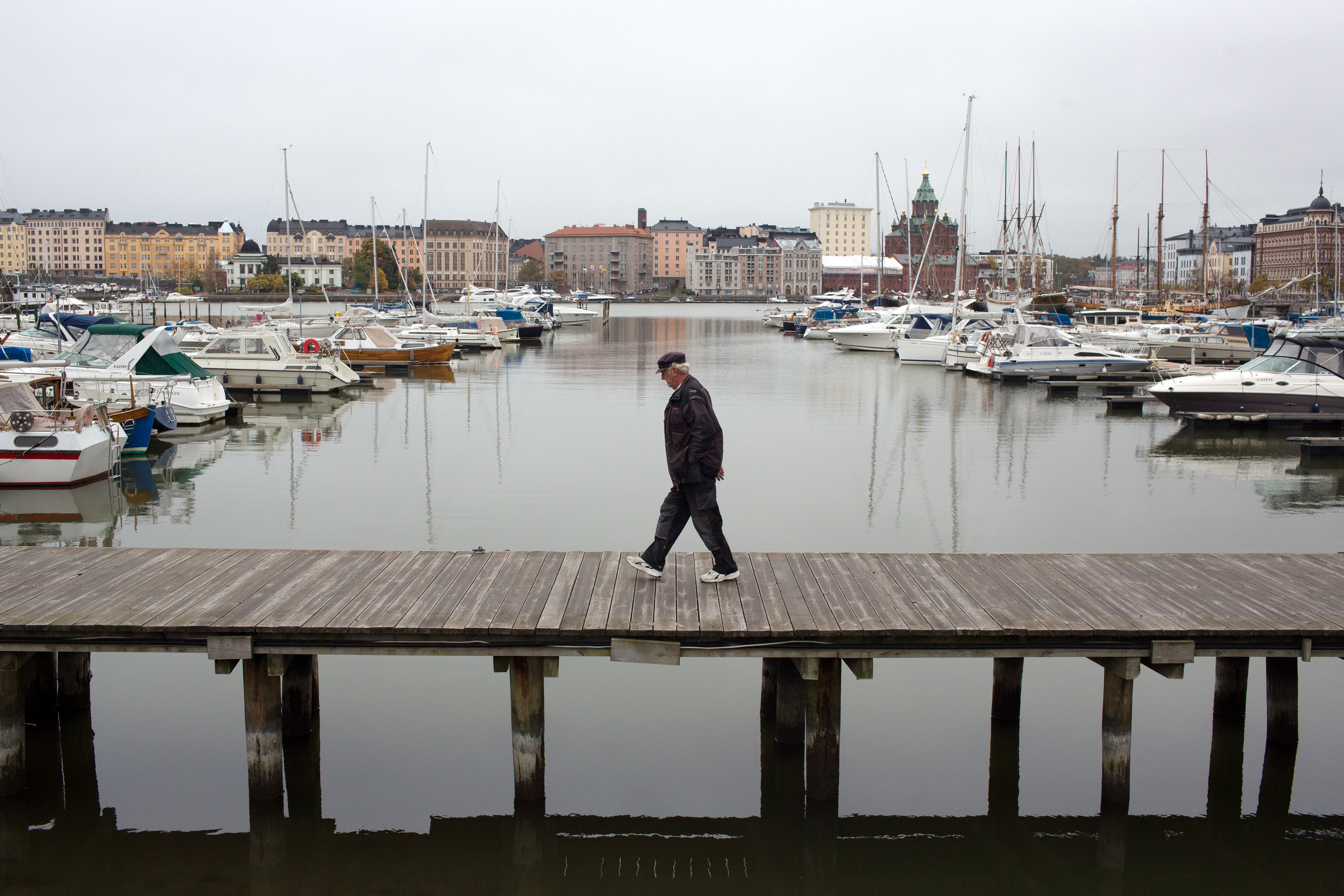What the rest of the world can learn from Finland’s relations with Russia

The greatest achievement of Finland’s 100 years of independence? Survival.
What has largely been a distant threat to many countries in the West has been a matter of life and death in the northeastern corner of the European Union. For Finland, which shares a 1,300-kilometer (800-mile) border with Russia, safeguarding its sovereignty remains the focus of policymakers, a century after the then-Grand Duchy of Russia declared its independence.
“Russia is a permanent dilemma for Finland — a problem without a solution that it needs to manage,” said Rene Nyberg, a retired diplomat who once served as ambassador to Moscow and Berlin. “It’s not theory to us like it is to, say, Belgium or Portugal.”
In the worst of worlds, Finland’s 100 years of history now risks repeating. How it has managed to stay independent all this time could hold valuable lessons. Russia’s annexation of Crimea has raised tensions on the continent to their highest level since the end of the Cold War and the U.S. election of President Donald Trump is raising doubts about the post-World War II political order.
German Chancellor Angela Merkel, whom many now regard as the unofficial leader of Europe, underlined the stakes this week by saying that Europe now has to stand up for itself. Trump alarmed fellow North Atlantic Treaty Organization members by declining to explicitly reaffirm his commitment to Article 5, NATO’s pledge of collective defense. He has repeatedly complained about the fact that most NATO allies are not honoring a promise to devote at least 2 percent of their gross domestic products to defense spending.
That’s a complaint that would resonate in Finland. While it has officially stayed out of the alliance in deference to Russia, it’s one of the few European nations that plan to boost defense spending above that threshold. Finland is in the process of replacing its aging fleet of F/A-18 Hornet fighter jets with next generation F/X military aircraft, with the project expected to cost 5 billion to 10 billion euros.
Finnish anxiety is deeply rooted after a bloody modern history that’s unprecedented in the Nordic region.
A civil war that pitted socialist Reds against non-socialist Whites in 1918 left almost 40,000 people dead, while more than 93,000 Finns died fighting two wars against the Soviet Union between 1939 and 1945, according to the National Archives. The peace accords of 1947 meant ceding about a 10th of its land to the east and paying onerous war reparations by delivering costly industrial goods to its neighbor in the east.
In the decades that followed, Finland focused on remaining outside the Warsaw Pact, seizing every opportunity to move closer to the West without angering Moscow. Deference to the Soviet Union, in the form of a policy known as “Finlandization,” became a pragmatic survival strategy. The country’s “special relationship” with the USSR was manifested in, for example, Moscow’s influence over Finnish Cabinet appointments and self-censorship by local policymakers and the media.
Such acquiescence helps explain why Finland never joined NATO and only became a member of the EU in 1995, alongside Austria and Sweden.
“Security policy perspectives permeate Finnish thinking — for a good reason,” Nyberg said. “Whereas for Sweden, EU membership was primarily an economic question, for Finland it was a security issue first and foremost. It brought Finland into the sphere of Western solidarity. Before that, our position could always be contested.”
Finland has been intensifying its dealings with other Western states since the illegal annexation of Crimea, said Martin Kragh, head of the Russia and Eurasia Program at the Swedish Institute of International Affairs.
Although its defense forces are already fully compliant with NATO and Prime Minister Juha Sipila reiterated on Wednesday that Finland retains the option of seeking membership, it’s unlikely to join the organization, however.
Finland’s relationship with NATO is like “smoking without inhaling,” Nyberg said.
The next step is even more cooperation with the West, especially with Sweden and other Nordic nations. Their heads of state — the kings and queens of Sweden, Denmark and Norway, as well as Iceland’s president — will descend upon Helsinki on Thursday to celebrate the centenary and rub elbows.
“Finland’s active bilateral agenda with Russia remains an important asset,” Kragh said. “Finland knows its neighbour in the east well.”